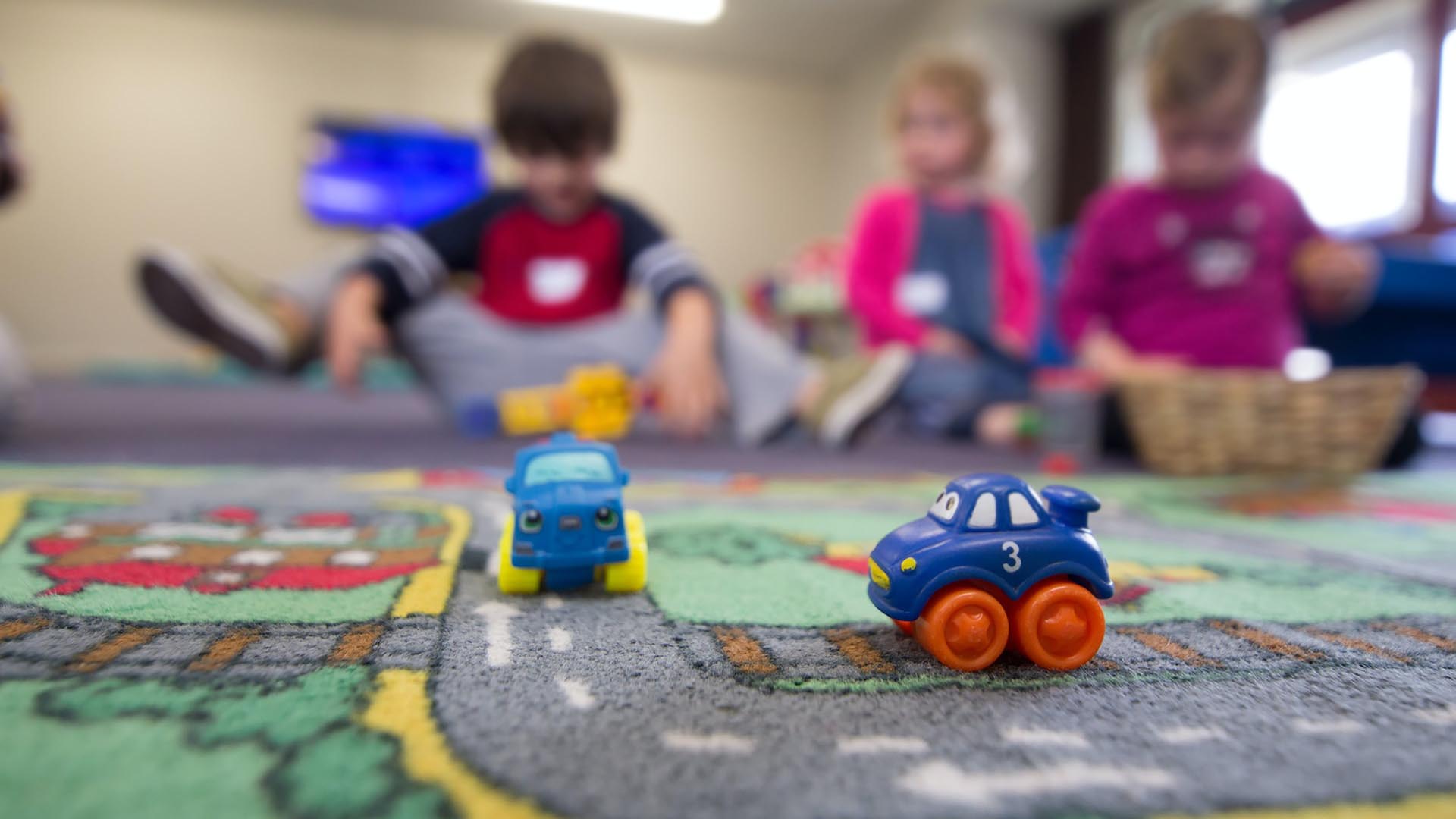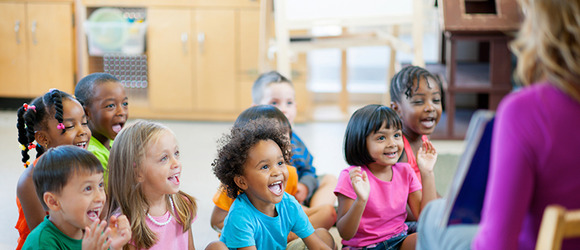Discover Top-Rated Daycare Near Me for Infants: Your Overview to Top Quality Care
Discover Top-Rated Daycare Near Me for Infants: Your Overview to Top Quality Care
Blog Article
Recognizing the Relevance of Childcare for Your Kid's Social Development and Knowing Knowledge With Involving Tasks
The relevance of childcare in forming a toddler's social advancement and knowing can not be overemphasized, as it provides a structured atmosphere filled up with appealing activities that are crucial for early development. As we discover the multifaceted benefits of childcare, one need to take into consideration just how these foundational experiences influence a youngster's future social interactions and general advancement.

Advantages of Social Communication
Social communication plays a vital function in the developmental trajectory of young children, working as a foundation for crucial social abilities. Involving with peers allows kids to exercise communication, find out to reveal their feelings, and establish empathy. With shared play and cooperation, they start to recognize social standards, such as taking turns and sharing, which are essential parts of successful interpersonal partnerships.
Furthermore, social communications add to cognitive growth. As young children connect with their peers, they improve their language skills, expand their vocabulary, and enhance their capability to verbalize thoughts and sensations. This exchange of ideas fosters essential thinking, as children learn to work out, fix troubles, and navigate disputes.
In addition, social communication promotes emotional regulation. Direct exposure to numerous social scenarios helps toddlers acknowledge and manage their feelings, eventually resulting in greater resilience and adaptability. The capacity to form relationships and add-ons additionally improves their feeling of belonging and self-worth, which are important for total wellness.
Importance of Involving Activities
Involving tasks are necessary for cultivating a revitalizing setting that boosts kids' social advancement. These activities not only mesmerize children's focus however also promote active engagement, enabling them to discover their environments creatively. Through play-based learning, kids develop crucial skills such as analytical, participation, and empathy, every one of which are important for developing healthy and balanced relationships with peers.
Taking part in engaging tasks, such as team games, art tasks, and interactive storytelling, urges young children to share their concepts and feelings. This expression is important for psychological knowledge and aids them understand the point of views of others. When kids engage in these tasks with each other, they learn to work out duties, share resources, and collaborate, which are basic facets of social interaction.
Furthermore, a well-structured setting that consists of diverse and revitalizing tasks aids in keeping young children encouraged and focused. This motivation promotes a love for finding out and exploration, laying the structure for future instructional experiences. Eventually, engaging activities in childcare settings are critical fit social skills, preparing toddlers for effective communications past the class, and supporting their overall advancement during these developmental years.
Developing Communication Skills
Efficient interaction abilities are important for kids as they navigate their very early social communications. In a daycare setup, kids are exposed to varied social scenarios that motivate non-verbal and spoken interaction. Talking with peers and caretakers cultivates language development, allowing young children to express their thoughts, needs, and feelings better.

Furthermore, day care environments supply chances for young children to observe and imitate interaction styles of their adults and peers. This empirical knowing is vital as children notice social cues, tone, and body language, which are crucial elements of efficient communication.
Cultivating Freedom and Confidence
As young children improve their communication skills, they simultaneously start to explore their independence and construct confidence in social setups (baby daycare near me). Daycare provides a structured setting where youngsters can participate in different tasks that motivate autonomy. From selecting their own tasks to taking part in group jobs, these experiences equip toddlers to make choices and express themselves
In a daycare setting, youngsters are usually provided with opportunities to fix issues individually, whether it's figuring out how to share toys or resolving problems with review peers. This cultivates critical reasoning and promotes self-reliance. In addition, caretakers support this growth by providing positive support and assistance, helping children to navigate social interactions with self-confidence.

Team activities, such as participating video games or collective art projects, assist in teamwork and educate toddlers the importance of working with each other. Through these interactions, kids discover to interact their sensations and ideas, even more boosting their self-esteem and social abilities.
Eventually, fostering freedom and confidence in daycare not only prepares kids for future social atmospheres however likewise lays the groundwork for a resilient state of mind, equipping them with crucial life abilities as they remain to discover and expand.
Building Lifelong Learning Foundations
A strong structure for lifelong learning is crucial for kids, as their very early experiences shape their attitudes in the direction of education and curiosity. Day care environments play a pivotal function in this developmental stage by supplying organized opportunities for exploration and interaction. Engaging tasks, such as group play, crafts and arts, and interactive narration, promote cognitive development while urging social interaction.
Through these experiences, kids find out necessary abilities such as analytical, communication, and teamwork. They are introduced to the principle of learning as a satisfying, collective process instead of a chore, which promotes a favorable mindset in the direction of education and learning. Exposure to varied point of views and peer interactions in childcare settings improves psychological knowledge, advertising empathy and durability.
Caregivers and teachers additionally add significantly to constructing this structure by modeling inquisitiveness and enthusiasm for knowing. By encouraging questions and helping resource with conversations, they develop an environment where youngsters really feel safe to express themselves and explore originalities. Eventually, the combination of supportive connections and appealing activities in daycare settings prepares for a long-lasting love of learning, furnishing kids with the skills and state of mind needed for future academic and personal success.
Verdict

The importance of childcare in forming a toddler's social growth and discovering can not be overstated, as it provides an organized setting filled with interesting activities that are critical for early growth.Social communication plays an essential role in the developing trajectory of young children, serving as a structure for necessary social abilities. When kids engage in these activities together, they discover to bargain roles, share sources, and work together, which are fundamental elements of social interaction.
Inevitably, engaging tasks in daycare settings are crucial in shaping social skills, preparing kids for effective communications beyond the classroom, and nurturing their overall advancement throughout these developmental years.
Eventually, the advantages of engaging activities in daycare settings play a substantial function in preparing kids for future social interactions and obstacles. infant daycare near me.
Report this page